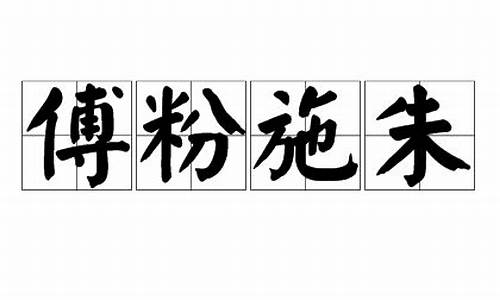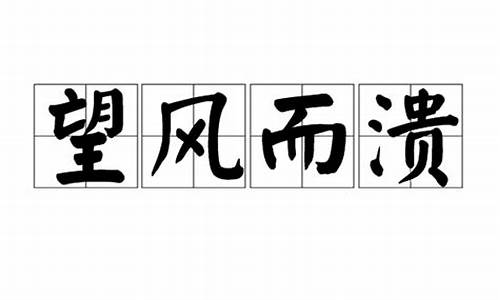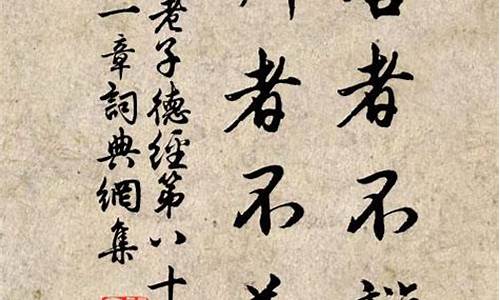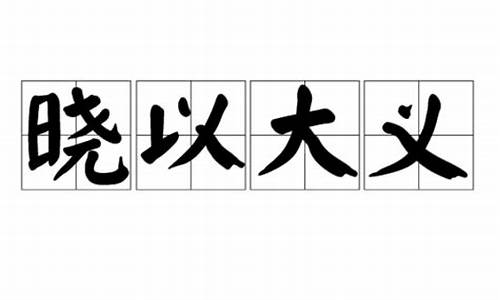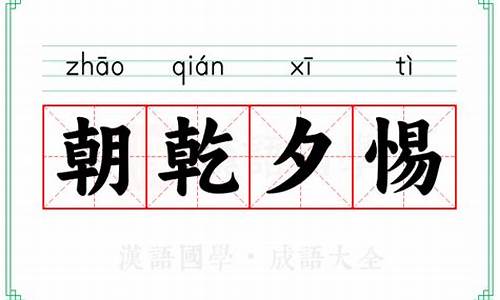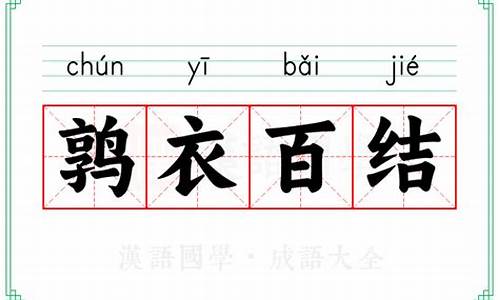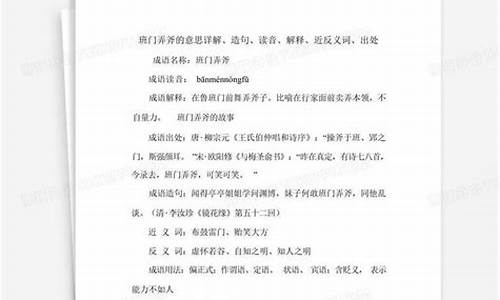言简意赅为什么读成hai-言简意赅的读音是
1.求论文提纲:浅谈汉语典故成语的翻译
2.言简意hai还是gai?
3.我想要初一的英语作文20篇,言简意赅,每一篇要不一样,最好是描写暑假生活的
4.怎样快速学习英语
5.跪求初中英语副词整理,最好言简意赅一点但是要把要点和分类写清楚。最好有例句(*^__^*) ……
求论文提纲:浅谈汉语典故成语的翻译

浅谈汉语典故成语的翻译
www.dxf1.cn
摘要:本文分析了典故成语的特点和它隐合的比喻意义。同时阐述了它与文化和翻译之间的关系。由于目的
语中存在文化空缺现象,为了使翻译的交际目的成功实现,从跨文化角度翻译典故成语时,归化优于异化。
关键词:典故成语 文化翻译文化空缺 归化 异化
引言
习语足某一语言在使用过程中形成的独特的固定的
表达方式,它包含成语、谚语、歇后语、典故等。英汉
两种语言历史悠久,都包含着大量的习语。至今为止,
国内外的外语类学刊发表了不少有关英汉习语(idoms)
的文章,但就汉语典故成语(idiom with allusion)的英译来
说,还没有学者单独地谈论过它的翻译方法。本文将从
跨文化的角度来探讨翻译汉语中的典故成语, 归化和异
化孰优孰劣的问题。
一
、典故成语
1.定义和特点
典故成语是习语中比较特殊的语言群体, 是固定的
四字结构,它不仅言简意赅,而且形象生动、趣味横
生、意义深远,如“东施效颦” “名落孙山” “叶公好
龙” “邯郸学步”等等,翻译过程中译者往往习惯性地
把英语习语(idom)和汉语成语联系起来。成语承载着
中华民族特有的文化,它与中图文化传统紧密相连, 它
是“熟语” 的一种,是习用的固定词组,在汉语中多数
由四个字组成。
2.隐含的比喻意义
典故成语的定义使我们知道,在使用中我们通常注
重的足它的比喻意义,而不是从字面上看出的意思。例
如:
水落石出(苏轼 后赤壁赋》)
字面含义是水落F去,水底的 头就露出来了。在
具体使用时比喻事情的真相完全显露出来。
“于是焉, 河伯始旋其面目,望洋向若而叹。”
( 庄子》)
现在, “望洋兴叹”比喻做事力量不够或缺乏条件
而感到无可奈何。
出自《史记·项羽本纪》中的“四面楚歌”现在比
喻孤立无援, 四面受敌的处境。
要想确切地弄清楚典故成语的这种比喻义,译者必
须具备深厚的文化知识,了解中国悠久的历史文化。
二、文化和翻译
1.定义
英罔人类文化学家爱德华·泰勒在《原始文化》
(1 871)一书中首次把“文化”作为一个概念提了出
来,并表述为: “文化是一种复杂的集合体,它包括知
识、信仰、艺术、道德、法律、风格以及其在社会上习
得的能力与习惯。” 可见文化的覆盖面很广,它是一个
复杂的系统,语言作为文化的组成部分,反映一个民族
丰富多彩的文化现象。
虽然中国文化和英国文化有很大不同,在典故成语
英译时有很大困难,但不是说中两方人无法互相沟通,
翻译架起了跨文化交际的桥梁。
美国著名的翻译理论家,尤金·奈达(Eugene A
Nida),对翻译作了如下定义: “Translation consists in
reproducing in the receptor language the closest natural
equivalent of the source language,first in"terms of mean ing
and secondly in term s of style.”(Eugene A Nida,Charles R
Taber:“The Theory and Practice of Translation”,1969)
翻译过程不仅涉及两种语言, 而且涉及到两种文
化, 它是通过语言机制的转换连接或沟通目的语文化
(Target Culture)和源本语文化(Source Culture)的桥
梁, 足具有不同语言文化背景的人们互相交际的媒介。
他 时强调“翻译中,意义是最重要的, 形式次
之,对应的形式会丢失源文本(the source text)的文化
意义,这是源文本的交际特点, 这样会阻碍跨文化交
流”(Nida,The Sociolinguistics of Interlingual
Communication,1996)。翻译是一种交际活动,为了使人
们互相沟通,源文本的意义应该被清楚地传达,翻译主
要是释义,从这个意义上说,翻译典故成语时,归化应
是最主要的策略。
2.异化、归化
所谓异化、归化是就翻译中所涉及的文化转化而
言,前者以源文化为归宿(source language culture
oriented,i.e.culture oriented),后者以目的语文化为归宿
(target language culture oriented,i.e.culture oriented)。即
“异化”提倡泽文 。1尽量去适 、照顾源语的文化及
原作者的遣训用字习惯,而“归化”则恰恰相反,主张
译文应尽量适应、照顾日的语的文化习惯,为读者着
想,替读者扫除语言文化障碍。
3.文化空缺
“语言词汇足最 的承载文化信息、反映人类社
会生活的工具”。英汉训’『L的文化内涵极为丰富,但
许多方血存在着不对 现缘。从语言学和跨文化交际学
的角度来说,它的产生是 为每一种语吉都仃它自身所
特有的语言体系和建构,每一个民族都有它[_I己的生
活习惯、思维方式、语 心理、行为规范、价值观念
和文化传统, 两种语言之问的语义和文化的对等是极
为少见的。一种语 中的训 另一种语言中也许没有
对应或契合的浏,所以 英洋典故成语时必须改变它
的结构形式。
4.举例
下面通过几个例子来具体分析典故成语英泽时,归
化和异化这两种翻洋方法孰优孰劣。
(1)东施效颦(((红楼梦 第3 4章)
译文.“Tung Shih imitating Hsi Shih”(Yang)
洋文 Zhungzi’S story of the beatutiful Xi—Shi’S ugly
neighbour,whose endeavours to imitate the hideous that
people ran from her in terror.(David Hawkes)
译文.山EJ《红楼梦》,在处理含有文化特色的 故
成语时,杨宪益先生采用了异化的洋法,把“东施”译
成了“Tung Shih”,一个两方文化中 缺的人物形象,
因此这样的泽文对J:曲方读者来说足毫无意义的。 霍
克斯采用地道的英语表达法, 外 读者看来町是妙不
可苦。
(2)愚公移山(《A Dictionary of Chinese Idioms in
English)),Northern Art Printing Company)
泽文.“The Foolish Old Man who removed the
mountains.”(异化)
译文 “the determination to win victory and the couragr
to surmount every dificulty”(归化)
(3)请君入瓮(《A Dictionary of Chinese Idioms in
English)),Northern Art Printing Company)
译文l"Will you kindly step into the jar?”(异化)
译文2“Make a person suffer from his own scheme.”
(归化)
在例(2)中, 洋文采用l芹化的译法把“愚公” 洋
成了“The Foolish Old Man”这样一个贬义的短语,严
重误解了成语本身的内涵。例(3)的徉文同样用异化
译法无法传达出成语本身所表达的J下确意思。而 例中
的译文 都用归化译法翻洋山“愚公移山”和“请君入
瓮”这两个成语的比喻意义。使口的语读 理解了原语
意义,实现了翻泽的口的。
三、结束语
翻译的本质目的是沟通,足让译语读者理解懂得原
文的意思。这就好比把一个人说的话翻译成哑语,再怎
么“说”都没有用, 只有把蜕的话转换或日“归化”成
用手势表示的哑语,才能让聋哑人明白。因此,翻译的
本质目的决定了翻译典故成语时,归化是更好的方法。
但同时, 归化法也并不排斥异化法, 而是两者互为补
充。总之,在翻译时, 采取归化占主导,异化从属的
方法,使两者相得益彰。
参考文献:
[1]包惠南.文化语境与语言翻译[M].北京:中国对外翻
译出版公司,2O01.
[2]陈定安.英汉比较与翻译[M].北京: 中国对外翻译出
版公司,1998.
[3]刘玉杰,钱莲生.汉语成语英译词典[M].北京:北方
文艺出版社,1 999.
[4] 其昌.汉英翻译技巧[M].北京:外语教学与研究出
版社,1990.
[5]工襦祥.文化与语言‘[M]北京:外语教学与研究出版
社,2OO0.
[6]许建平[M].“跨文化翻译中的异化与归化问题”[J].
中 翻译,2002, (5).
[7] 治奄.人学汉英翻洋教程[M].济南: 山东大学出版
社,1999.
[8]许 钧. 代美 翻译理论研究[M].武汉:湖北教育
出版社,2001.
[9]夏征农.辞海[z].北京:中 大百科全书出版社,
1999.
[10]郭建中.文化与翻译[C].北京:中国对外翻译出版
公司,2000.
[H]曹雪芹,高鄂.红楼梦[M].北京:人民文学出版社,
1982.
[12]Baker,Mona,In Other Words:Translat/on
Course[M].Beijing-Foreign Language Teachi—
ng and Research Press, 2000.
[13]Hawkes,David,The StOng of the Stone[Z].
Penguin Books, 1980.
[14]Yang,Xianyi&Gladys,A Dream of Mansions[Z].
Bei Jing:Foreign Language Press,1994.
[I5]Nida Eugene A.&Taber CharlesR,The Theory
817d Prac tice of Translation[M].Leiden:E.
J.BriII,I969.
[16]Nida EugeneA.。Language, , ture and Translating
[M].Shanghai:Shanghai Foreign Language Edu—
cation Press。1993.
言简意hai还是gai?
赅的拼音是gāi,声母是g,韵母是ai,声调是第一声。
言简意赅 [ yán jiǎn yì gāi ]?
释义:语言简练而意思完备。赅:完备。
出自:清·华伟生《开国奇冤·被擒》:“梦华先生,你看老夫此稿如何?言简意赅,洵不愧为老斫轮手。”
示例:我们作文应该言简意赅,不要拖泥带水。
语法:联合式;作谓语、状语、补语;含褒义。
近义词:
短小精悍 [ duǎn xiǎo jīng hàn ]?
解释:形容人身躯短小,精明强悍。也形容文章或发言简短而有力。
出自:西汉·司马迁《史记·游侠列传》:“解为人短小精悍。”
译文:郭解身躯短小,精明强悍。
示例:郭沫若《涂家埠》:“一位短小精悍的人来了。一眼看去便知道他是广东人,哨兵向他敬礼,称呼他是排长。”
语法:联合式;作谓语、定语;含褒义。
我想要初一的英语作文20篇,言简意赅,每一篇要不一样,最好是描写暑假生活的
1.What fun I had last Sunday! Last Sunday, my classmates and I went to the moutains.We met at the school gate,then we went there by bike.When we got there, the sun was rising.How beautiful it was!We decided to climb the mountains.We played a game to see who was the first one to get to the top.I tried my best,but I failed.We were tiredl,but happy!
2.Last weekend, On Saturday morning I got up at 6;30. After breakfast I did my homework at home.
In the afternoon , I played football with my friends on our playgroud. In the evening I watched TV with my parents at home.
On Sunday morning I went to visit my grandparents with my mother. In the afternoon I went to go fishing with my grandpa. We had a good time . I went back home with my mother in the evening. What a wonderfu weekend !
3. My vacation was very fun.I went to World Expo.There were many interesting building about China,Amrica and France.The Chinese building is tall.And I enjoyed beautiful things.I thought my vacation was very substantial.
4.During my vacation,I went to World Expo with my family. While visiting the hall , we fell in with a group of foreign friends.And we talked happily with a volunteer's help.Then we were interested a lot by some fun inventions.In a word,we had a good time in Shanghai,I hope I can spend vacation here once more.
5.Last summer vacation, I visited Beijing with my parents,The weather was fine but a little hot.We visitded the Palace Museum,the Great Wall,,Tian'an Men Square and a Beijing hutong,they are all so great and beaitiful.And i enjoyed lots of delicious and cheap food during the days.We also went shopping .My parents bought some beautiful clothes for me.I had a good time there.
6. Last summer holiday,My family had gone to HongKong ,At the morning ,my father drive the car to Shenzhen,After the lunch,we take the car to HongKong,HongKong is a center of fanancial.There are many people in there,We just go shopping ,then ,we had a good dinner. The next day ,we gone to the Ocean Park,it was very intersting and wonderful.
7.Last summer, I went to a village that was far away from our city. My parents and I went there to visit my uncle.I found it a beautiful place to live. The water was clean in the river, birds were singing in the trees, farmers were working hard in the field, and the moon at night was whiter than that in our town. The village was so nice that I didn't want to come back!
8.Today,we were went to the beach.The weather liked fine.We were swam and played beach volleyball.Our lunch was very delicious.There people were very friendly.We had a great feeling.We also fished many big fish.They were very delicacy.We had dinner in a big restaurant.There were many nice food.We came back home was nine o,clock.
9.Last weekend Tony was busy but happy. He did a lot of housework.. He cleaned the room and washed the clothes. Because his mother had to work last Saturday. He did most of the housework for her. His sister had to study for the geography test. They were really busy.
10July 22th Thursday sunnyToday I came to the city of Bishan,it's a beautiful city.It's the shoes centre of western china. I think many people know it. It developed very quickly these years.More and more people move in it. I'm pleased to be a Bishan people.July 26th Monday sunny Hello, everyone! I’m so pleased to tell you: I have finished my website.
Welcome to my hometown! Haimen is my hometown. It is a modern and busy town. It has a long history. There are many big supermarkets, beautiful gardens and good factories here. It is very easy to go shopping. You can see green hills, big trees and nice flowers. There are many restaurants in Haimen. You can enjoy Haimen goat. It tastes very delicious. Many visitors come here to enjoy it.
There are many good places to visit. There is a park and a big Shopping Mall. You can see films in Renmin Theatre. My school is one of the best schools in my hometown. It is on Changjiang Road. It is very beautiful. I hope you can come and visit soon.
my mother
Here is my mother.
She is a good mather.she uaually comunicate with me.She fourty years old.She likes singing and swimming.she watches TV every night at home.She likes go shopping.She very perrty.I like very her much.
This is my mother. I like her very much.Do you like my mother?
MY BIRTHDAY 我的生日
Yesterday was my birthday, so some of my classmates sent me presents. Mother prepared a tea party for me. I invited all of them to come and take part in it.The tea party began at half past six. There were cold drinks and refreshments. We ate, talked and laughed. We felt that we were the happiest men in the world.Time passed quickly. In a twinkling, the clock on the wall struck nine. We could not but say “Good-bye” to one another.
昨天是我生日,所以有几位我的同班同学送我礼。母亲给我准备一个茶会。我邀请他们都前来参加。茶会下午六点半开始。有冷饮和点心。我们又吃又谈又笑。我们觉得是世界上最快乐的人。时间过得很快。转瞬间,墙上的钟敲九点了。我们不得不互道再见。
My favorite sport
There are many kinds of sports that I enjoy, such as swimming,running, and dancing. However, the sport that I like most is football.
football matches are going on here and there around the world. Pick up a newspaper and you can learn the the results of the football matches. We enjoy playing football, watching football games after work. During the football matches of the World Cup,millions of people watch the matches on TV. When their favorite teams win, they will give them three cheers. When they fail,they feel sad. We all hope our national team will be the strongest one in the world.
And the last,in the all football star,i like Ronaldo best,he is cool!
Football is a really great sport ,it can make us healthy,i really like it!
1. My Good Friend
Zhang Ying is my good friend. She’s in Class1, Grade4 of Tianjiao Primary School. She’s a model student. She’s clever and she’s helpful, too. She often helps teachers and young students at school. She is good at Chinese, maths, English, arts and crafts, music and so on. She has a lot of hobbies. She likes painting and drawing. And she likes listening to music, having picnics with her parents. Oh yeah, she likes fishing, too. But she doesn’t like playing basketball, football, table tennis or volleyball. Zhang Ying is the best friend of mine. I like playing with her. We always work together and help each other.
2. My Favourite Flower
My favourite flower is lily. Lily is the national flower of France. I like white lily best. Because it’s very beautiful and pure. I planted a white lily in my garden in spring. I watered it every day. It grew very fast. It was taller and taller. One day, I got home after school. The lily blossomed. It looked like an elegant fairy. I was too excited to cry, “Oh, white fairy, white fairy!” I couldn’t help dancing. At that night, I dreamt that I was a beautiful fairy.
3.An Unforgettable Holiday
I am ’always busy with my lessons. What I have to do everyday is nothing but study.
Luckily, last summer my family went to my uncle’s farm.We enjoyed a really interesting holiday. During the holiday, I didn’t have to get up early, nor did I need to finish many exercises. I rode the horse in the fields. I milked the cows on the farm. To my GREat joy, my uncle invited me to go fishing. Life on the farm is quite different from that at school. I want to go back to spend my summer holiday again.
4. My Happiest Day
Today is Friday. It is my thirteenth birthday. I got up very early in the morning and put on my new clothes happily. My parents bought me the new clothes as my birthday presents. I went to school earlier than before. I invited many of my classmates to come to my birthday party in the evening.
Evening came at last. Many of my classmate came to my home. they bought me lots of beautiful presents. they all said,"Happy birthday to you!" We sang birthday songs happily.then my parents brought out a big birthday cake, saying, "We love you for ever. Happy birthday!"
At the end of the party, we ate the birthday cake and some other delicious food. How happy I was!
5.A Tree
A tree has three main parts, the roots, the branches and the leaves. Under the ground, the roots spread out so that the tree can stand firm. Above the ground, the roots form the trunk, and the trunk supports the branches. Near the top of the tree, the trunk divides into branches. At the top of the tree, the leaves grow out of the branches. the leaves receive sunlight to help the whole tree grow.
1.My good friendMy good friend is XXX.He(She) is 13 years old.He(She) has a round face.And two big eyes.His height is 165CM.He likes playing basketball and football very much.(She likes dancing very much.)He likes dressing white clothes.(She likes dressing pink clothes.)He(She) is kind and friendly.He(She) learns very well.His(Her) favourite subject is English(Chinses).He(She)is a good boy(girl).We love him(her) very much2.HOSPITALPatients to a hospital, the doctor asked: "Where are you uncomfortable the? "patients replied:" I made a dream last night, dreamed he was in grazing cattle. "Doctor said:" your mind at ease, This very normal, everyone would dream about, dreams and reality is different. "Patients who saw very tense, said:" But, but I discovered when I wake up in bed mats are missing half!
TreeA tree has three main parts, the roots, the branches and the leaves. Under the ground, the roots spread out so that the tree can stand firm. Above the ground, the roots form the trunk, and the trunk supports the branches. Near the top of the tree, the trunk divides into branches. At the top of the tree, the leaves grow out of the branches. the leaves receive sunlight to help the whole tree grow.
My Favorite Sports我最喜爱的运动
Sports help everyone to keep healthy, happy, and efficient. So I pay special attention to games, especially table-tennis. Table tennis is my favorite game. I play it almost every day.
Table-tennis is an ideal game us because it brings the whole body into action. It strengthens our muscles, expands our lungs, promotes the circulation of the blood, and causes a healthy action of the skin. Besides, it is very amusing and does not cost us much money. Table-tennis is very moderate; it is not so rough as football. It is an indoor game and can be played even on rainy days. Thus, it is my favorite kind of exercise.
运动能帮助每一个人保持健康、快乐和有效率。所以我特别重视运动,特别是桌球,桌球是我最喜欢的运动。我几乎每天玩。
桌球对我们而言,是一项理想的运动,因为它可以使我们全身运动,它可以增强我们的肌肉,扩张我们的肺部,促进血液循环,并且使肌肤产生健康作用,此外,它很有趣而且所费不多。桌球是相当温和适中的,它不像足球那么粗野。它是一种室内运动,甚至在下雨天也能玩。因此,桌球是我最喜爱的一种运动
怎样快速学习英语
英语学习基本上是分步骤的,一般是音标、单词、短语、句子,以此类推。下面是我给大家整理的快速学英语的方法,供大家参阅! 快速学英语的方法:背单词的好方法 下定决心,持之以恒。背单词不是一朝一夕就可以完成的事情,因此要下定决心,持之以恒,只有坚持不懈才能够有效果。 有的单词需要反复记,为了克服遗忘,还要反复的复习,这样效果才好。 及时复习。艾宾浩斯遗忘曲线告诉我们,越是刚刚学过的东西会被遗忘的可能性越大,因此我们要及时复习,而且要经常复习,我刚上大学的时候,英语也是刚刚及格的水平,为了准备四级考试,英语词汇书应该翻了不下百遍,你要相信,没有做不到的事情,只有可能是你没有付出足够的努力 正确的拼读。记单词之前要先会正确的读单词,因为我们根据单词的读法和词根规律可言将一类单词放在一起记忆,这样就形成了一个记忆树,每个单词就像大树上的枝叶一样,可以进行印证,这样遇见相似的单词,即使你记不清它的准确含义,也可以根据前后语境进行猜测。 寻找适合自己的方法。每个人的学习方法不同,只有找到最适合自己的方法,才是最有效果的,比如有的人喜欢边读边记,有的人习惯拼读,有的人则喜欢先听,根据发音来记单词,有的人甚至会选择阅读,通过阅读和查词典来积累词汇,每个人的学习方法不同,在记单词上也是一样,只有找到最适合自己的方法才会有好的学习效果。 快速学英语的方法:学习语法的最佳方法 其实,语法是从阅读学来的。 语法书当然有用,但它和字典一样,只是从旁辅助的工具。只看语法书却从不阅读,一定会走火入魔,其下场与背生词相同。 我们学生的作文甚至论文有一个通病,那就是用字太深,但却很少用得对,于是整篇文章充斥着无数用生僻词汇串成的怪异句式。甚至一篇洋洋洒洒数万字的论文,往往只有数十句通顺的话,这便是学习时只重背诵生词,忽视语法的产物了。 其实,学习语法与学习生词相似,都要in context地学。记硬背单词没有用处,因为你不懂单词的用法,也不清楚其应用的场合以及语气。同样地,像背诵公式般记什么名词关系从句,什么分词修饰语,即便词序和结构都懂了,写作时真的用得着吗?用得对吗?例如许多人写出的倒装句,十有八九会出错。并非结构出错,而是运用不当。 既然语法规则不能记硬背,那么语法该怎么学? 从阅读中领悟语法,再以语法书巩固领悟而来的知识。 举个简单的例子。冠词the看似简单,其实用法深奥多变。一本详尽的语法书往往会记录数十条运用the的规则,以及无数的例外情况,而且例外中仍有例外。比如:?根据冠词法规第五条第三小节,这里应用the而非a,但由于前面出现了某字,符合了例外情况三,所以这里用the...?。看看吧,这么多规则以及例外,如果记的话,记得住这么多吗?即便记下了,写作的时候也未必用得出。 学好语法,语感比规则重要。 养成阅读英文的习惯。仍以the为例。每次读书时总会遇到the字数十次,而每次都会见到不同的情况,不同的句式。读的多了,加上多留意词语之间的关系,便自然能领悟出the字微妙的用法,写作时也能够少犯错。 阅读时遇到困惑,再去翻阅语法书。这时,语法书上的繁杂规则就正好派上用场了。因为你知道自己要找什么,也知道这些语法规则怎样应用于实际的句子。 快速学英语的方法:如何学好英语口语 我觉得要学好英语有三个方面:信心、努力、方法。首先是下决心说一定能做好,第二是努力。比如大量的模仿阅读和背诵,每天把一篇文章跟听力材料后面拼命地去读,不断去模仿,去纠正。英语的学习很需要一个能说英语的环境,大家有一个误区,认为出国可以学好口语,要么就是通过外教来制造学习英语的环境。其实不是每个都有这样的机会。我主要谈的是自我训练方法。 跟自己交流。 如果我既没有钱没有条件请得起外教,也没有一个学习英语的环境呢?在这种情况下,我又该怎么学习英语?其实我就是处在这种情况中,我的方法是和自己来交流。早晨起来3、5分钟用英语策划今天的生活,比如简单地牢骚几句:I am so tired, why should get up so early to have classes? I do't want that! 然后可以换个角色劝自己: If you want to quit the class, your teacher will give you a low point.如果周边没有人你就说出声来。如果旁边有好几个人,就自己默默地想。 然后起来做事情,你可以一边做一边把你正在做或者想到的东西说出来,比如说" I am dressing myself, I hate this red one! I want to dress myself beautifully.有机会就说出声,没有机会就默默地说。其实很多时候没有人监控,这些都可以说出来。晚上睡觉的时候,到了床上之后闭上眼睛,看看今天发生了什么事情,总结一下今天的生活,把这些都用英语说出来。比如说"What happened today? Oh this morning I talked with my friends, this afernoon, I had a cup of coffee. The coffee was so nice. I liked it so much. And I felt very happy today. ? 你看把发生的事用英语说出来,初中生都做得到,那么高中生更可能了。而且还谈一下自己的感想、感觉、心情,这些都可以总结一下。早上计划用将来时,晚上总结用过去时。把训练过程用完成时说一遍。 勇于犯错。 如果刚开始跟别人说话紧张的话,你就跟自己交流。你跟别人说话紧张的话,刚开始自己跟自己说英文,不会错,说英语要变成翻译,首先想汉语,用英语翻译成汉语,其实发现这些汉语在课本当中都出现过,就是想不起来。我建议有一些学习方法,你要常常想一下,中国人说汉语怎么说?看久了以后,英国是这样的英语,汉语这么说,熟练了以后就可以发现英国人经常说?喝杯茶?。中国人用喝,你可能会说?drink a cup of tea?英语用?have a cup of tea?。另外犯了错误怎么办?在美国、加拿大,你说错话别人都不会管你。一般错误出现都不是特别的错误,就算是的话也要犯这个错误。 比如说我明天到上海,可能说错了,Tomorrow I went to Shanghai.正确的是 I will go to Shanghai.但你会发现这是紧张造成的,说多了就不会犯这个错误。所以犯的错误没什么可的。80%的是可以纠正,剩下纠正不了的话也不会影响交际。有这些错误也比你一点都不会强。 快速学英语的方法:英语不光要学习还要及时复习 朗读和背诵是英语学习的第一步。在背诵的过程中,耳朵可以听,眼睛需要看,口舌要发声,大脑要记忆。看似只做一件事,实际上却同时调用了听、说、读、记忆四重大功率发动机? 掌握科学的英语学习方法。语言不是无本之木,必须依赖"源头活水",也就是常说的"输入",才能指望得到可观的"输出"。 "输入"的来源有很多,英语阅读材料、视听材料都是很好的"输入"途径。在增加"输入"的时候,一个无法回避的问题就是记忆。语言这门学问具有很强的记忆性质,而记忆的关键在于"温故知新"。一个人记性的好坏也许和先天遗传有关,但如果掌握了记忆的规律,即使是一般人也能握住通往英语学习记忆之门的钥匙。 根据心理学家绘制的"记忆曲线",人的记忆有两个遗忘高峰,一是接触信息后一分钟,大部分短期记忆在这个时间内将被遗忘。二是接触信息后二十四小时,是大部分长期记忆的"鬼门关"。要想保持长期记忆的秘诀就是:"在你忘记之前复习它,并记住它。"例如,在背诵生词和文章后的二十四小时之内复习一遍,次日再复习一遍。因为复习时自己对这些内容并没有完全忘记,所以这并不需花费太多的时间。看似复习只起到了加深印象的作用,事实上在重复巩固信息的同时,大脑也在将短期记忆转化为长期记忆。因此,"及时复习"对加强记忆可以起到英语学习事半功倍的效果。 此外,英语学习增强记忆的另一个秘诀在于朗读和背诵。朗读和背诵是出口成章的第一步。在背诵的过程中,耳朵可以听,眼睛需要看,口舌要发声,大脑要记忆。看似只做一件事,实际上却同时调用了听、说、读、记忆四重大功率发动机,对大脑皮层的刺激远非单一的阅读所能相比。读得多、背得多,不仅有利于记忆,同时语感和流利度也会在不知不觉中上一个台阶。等积累达到一定数量时,就能水到渠成,临到用时脱口而出,流利的口语自然不在话下。 当然,"输入"的目的在于"输出",例如写作和口语表达。关于"输出"我没有什么特别的感受和体会,"Practice makes perfect.(实践出完美)",这句话言简意赅,已经说出了其中的真意。
跪求初中英语副词整理,最好言简意赅一点但是要把要点和分类写清楚。最好有例句(*^__^*) ……
英语中有一些表示方式、 程度的副词具有两种形式。 如late,lately;
high,highly;slow,showly等 等。在这些词当中,两种不同形式所表达的含义有的完全不同,有的很相似,而有的却完全一致。这就给人们 使用这些词时带来一定的麻烦。特别是在学生中间,总免不了使用时的混淆。笔者想就此问题
分类作一点探讨 。
(一)本类词有hard,hardly;late,lately;most,mostly等等,这两种副词形式含义完全不同,所以 ,使用时不易引起混淆。
1.He works hard all day.他整天都在使劲地干活。
He hardly works at all.他很少干活。
2.You have come too late.你来得太晚了。
Have you see him lately?你最近见到过他吗?
3.The person who talks most is often the one who doesleast.说得最多的人常常干得最少。
The audience consisted mostly of women.观众大部分是女的。
4.The next flight dose not go direct to Tokyo; it goes byway of
Shanghai.下趟航班不直飞东京 ,而是绕道上海。
He will be here directly.他马上就来。
5.The rider pulled his horse up short.骑手突然一下把马勒住。
Make a right turn shortly beyond the village. 村前不远处往右拐。
6.Please stand clear of the gate.请不要站在门前。
He stated his view-point clealy.他很清楚明白地阐述了自己的观点。
7.The exam was pretty difficult.这次考试相当难。
Her little girls are always prettily dressed.她的小女孩穿着总是很
漂亮。
(二)这类词主要有wide,widely;close, closely ;high,highly等
等,这两种副词形式不同,含义 也有差别,但是没有第一类的区别明显,而且
翻译成汉语时用词也很接近。所以使用时很容易混淆。这类词含 义及用法上的
主要特点是:不带-ly的副词表示具体的行为和动作,说明的动作或状况有可测
量性和可见性;而 以-ly结尾的同源副词所表达的常常是抽象性的行为和状况。
这时,这些词大都具有"greatly"和"extremel y"的含义。试作如下比较:
1.Do you see that butterfly flying high above the street?你是否看
见那只蝴蝶在街道上方高高飞舞 着?
The distinguished guests were highly praised.贵宾们受到了高度赞扬。
2.He flung the door wide open.他猛地把门开得大大的。
We were widely different on many questions.我们在许多问题上分歧很
大。
3.You will have to pay dear for that telescope.买那个望远镜你得付
很高的价钱。
You will pay dearly for the insult. 对这样的侮辱你将付出高昂的代价。
4.She stood close against the wall.她紧挨着墙站着。
The police were watching him closely.警察在密切监视他。
5.The bird is now flying quite low.鸟儿现在飞得非常低。
He bowed lowly before the queen.他谦恭地给女王鞠了一躬。
6.They had to dig deep to reach water.他们挖得很深才挖到水。
You have offended him deeply.你冒犯他可不轻。
7.Grace is holding tight to Paul.格雷斯紧紧地搂抱着保罗。
The passengers were packed tightly in the train.火车车箱里挤满了乘
客。
8.Mr. Cole tends to speak rather loud.科尔先生说话声音总是很大。
Mr. Cole boasted loudly of his power. 科尔先生大肆夸耀自己的权力。
(三)这类词主要有slow,slowly;quick,quickly等等异形同义词。当
然,现代英语的语言规范性要求 用以-ly 结尾的副词来修饰动词,但由于句子
结构以及搭配的不同,使用时也具有不同的倾向性。在此,主要 探讨一下在什
么情况下常使用不带-ly的副词形式。同时, 把第二类中一些适应于下列规则
的词也包括进去。 总的说来,倾向于使用不带-ly副词形式的情况大致有下列
四种:
Ⅰ 用作比较级或最高级时:
1.Allen was walking quickly, but George was walking evenquicker.
艾伦走得很快,但乔治走得更快 。
2.The men were quarreling loudly, but the policemenshouted louder.
那些人在大声争吵着,但 是警察喊叫得更响。
3.The car went slower and slower until it came to a stand still.
汽车走得越来越慢,最后停了下 来。
4.Let's see who can run quickest.我们来看看谁跑得最快。
5.We must look closer at the problem. 我们必须更加仔细地查看这一问
题。
Ⅱ 有"so"或"too"修饰时:
1.It all happened so quick that I could do nothing. 这一切发生得如
此之快以致于我手足无措无法 对付了。
2.It is impossible to overtake him; your car goes tooslow.不可能赶
上他了,你的车太慢了。
3.Don't talk so loud; the child is in bed now.别这样大声说话,孩子
已经睡了。
Ⅲ 用于修饰表示移动、天气等常用动词时:
1.Come quick; we are waiting for you. 快来,我们在等你。
2.Drive slow; this part of the road is dangerous.车开慢一点,这段
路很危险。
3.The sun shines bright.阳光明媚。
4.When we left the shelter, the snow was falling thickand the wind
was blowing cold.我们 离开那棚屋时,正下着大雪,刮着寒风。
5.Business is going strong.生意兴隆。
Ⅳ 在固定词组中或当用于修饰它经常固定搭配的动词时:
1.Take it easy.不要紧张。
2.Stand firm and hold it tight.站稳抓牢。
3.He often plays high.他赌注常下得很大。
4.The secretary copied the rough draft of her manager outfair.秘书
把经理那份粗潦的草稿很清 楚地誊写出来。
5.They were drinking deep in the fort deep into the night.他们在城
堡中痛饮到深夜。
通过观察,以上三类词中第一类较易区别、掌握和使用。对于后两类词,在
判别使用哪一种副词形式时一 般可以考虑以下几个原则:第一是具体性与抽象
性的原则。在表示实实在在的物体活动、位置移动或具体可见 的状况和变化时,
常使用不带-ly的副词形式,如:climb high,live close by,open wide,sink
deep,tu rn sharp right;反之,具有抽象含义的动词常用以-ly结尾的副词,
如:think highly of,look closely
into,love dearly等等。第二个原则就是常用固定搭配与灵活搭配的不同。
在一些固定词组或经常搭配使用 的词组中,不带-ly 的副词形式使用得很多,
如aim high,run high,fight fair,goeasy with,drink de ep,sleep sound
等等。第三个原则是口语体与标准体的使用区别。如有人说"Speak loudly and
clearly. "也有人说"Speak loud and clear."对此情况难说谁对谁错,只能
说前一种说法属于规范性语体;而后一种 说法属于口语体。不带-ly 的简单形
式是早期英语遗留下来的口语体形式。例如现在还有人说"I badneed t his sort
of material."就如G.O.寇姆在〈英语句法〉(Syntax)一书中说过的,带-ly
的副词是标准语或 好的口语, 但在松散的口语和大众语中人们仍然坚持使用没
有-ly的简单形式。
根据以上原则,可以解释为什么可以说"Don't talk so loud. "但必须说
"He protested/complained
loudly。"Talk loud 是常用的搭配形式,而且talk一词的形象也比较具
体;protest与complain 则是搭配性 很强的词, 还常常和许多别的副词灵活
搭配, 如publicly,sharply,secretly等等。另外,这两个词比tal k更具
感彩,所以也就更具抽象性。
副词的用法
He studies hard. 他用功读书。
His mother is very glad. 他母亲很高兴。
(1).作状语
He works hard.(副词修饰动词)
他努力工作。
You are quite right.(修饰形容词)
你相当正确。
He parked the car very easily.(修饰副词)
他很容易地把汽车停放好了。
Unfortunately he was out.(修饰整个句子)
很不巧,他出去了。
(2).作定语
有时少数地点副词和时间副词可以作定语,放在所修饰词的后边。
注意
副词作定语时和介词短语作定语一样,一律后置。
(3).作表语
作表语的副词多数是表示位置的,如in, out,on,back, down,up,off,away,upstairs.
He is in. 他在家。
What's on this evening? 今晚演什么节目?
I must be off now. 我现在必须走了。
(4).作宾语补足语
Let them in.
让他们进来。
We saw her off two days ago.
两天前我们为她送行。
3 副词的位置
(1).地点副词、时间副词和方式副词一般放在句末
注意
地点副词作定语时要后置,不属于这种情况。参见P.72<2.作定语>的例句。
I'll wait for you here.(地点副词)
我将在这儿等你。
I'll meet him at the station tomorrow.(时间副词)
明天我将去车站接他。
Tomorrow I'll meet him at the station.
注意
有时为了强调时间,也可把时间副词放在句首。
The boy wrote the homework quickly.
(方式副词)
这个男孩子写作业很快。
They did their experiments carefully in the lab yesterday.方式 地点时间
昨天他们在实验室认真地做实验。
The students all worked well here last week
这些学生上周在这里都做得很好。
(2).频度副词在句中位置有以下两种
a.在be动词、情态动词及第一个助动词之后。
She is always kind to us(be动词)
她对我们总是很好。
I can never forget the day.(情态动词)
我永远也不能忘掉这一天。
The work has never been done.
助动词 助动词
(频度副词never放在第一个助动词has的后面)
这件工作永远也做不完。
b.在实义动词之前
He often goes to school early.(实义动词)
他常常早到校。
(3).程度副词有下列二种情况
a.修饰动词时,它在句中的位置与频度副词的情况相似。
He is almost forty years old.(在be动词之后)
他快四十岁了。
注意
如果句末同时有几个副词,它的基本顺序是:方式副词+地点副词+时间副词。
He can hardly understand you.
(在情态动词之后)
他几乎听不懂你的活。
I like the boy.(在实义动词之前)
我相当喜欢这个男孩子。
b.修饰形容词、副词时,放在它所修饰的词的前面。
He studies much harder now.
现在他学习努力多了。
The room is big enough to hold fifty persons.
(enough修饰形容词)
这个房间够大的可以容纳50人。
He runs fast enough.(enough修饰副词)
他跑得够快的。
例外
只有enough例外,置于所修饰的形容词和副词后边。赞同47
声明:本站所有文章资源内容,如无特殊说明或标注,均为采集网络资源。如若本站内容侵犯了原著者的合法权益,可联系本站删除。


